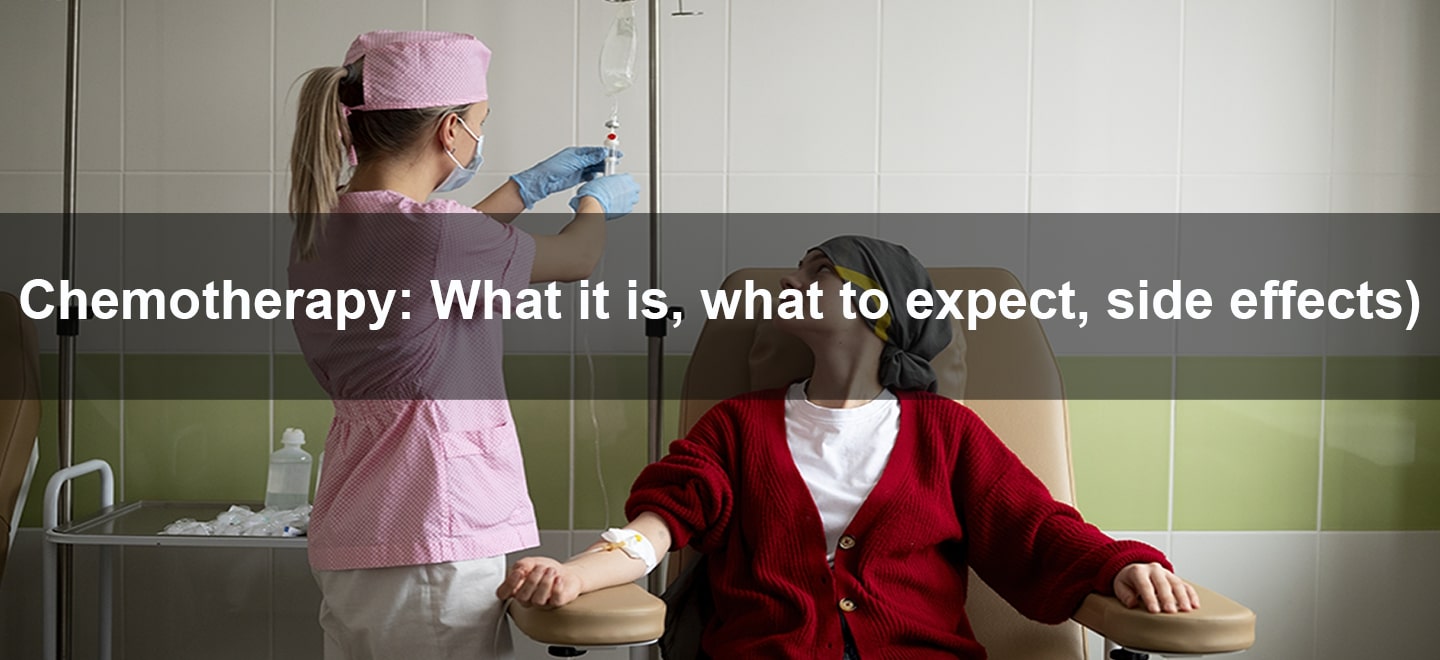Chemotherapy: What it is, what to expect, side effects
Chemotherapy: What it is, what to expect, side effects
Chemotherapy, often referred to as chemo, is a crucial component in the comprehensive treatment of cancer. This medical procedure involves the use of potent drugs to kill cancer cells and prevent their growth and division. Understanding what chemotherapy entails, what to expect during the treatment, and its potential side effects is vital for patients and their families.
How does chemotherapy treat cancer?
Chemotherapy operates by disrupting the cell cycle, a fundamental process governing the growth and division of cells within the human body. Cancer cells divide and grow rapidly, and chemotherapy aims to exploit this characteristic by targeting cells that are in the process of dividing. The drugs used in chemotherapy, also known as chemotherapy drugs, attack the cancer cells during different stages of the cell cycle, effectively inhibiting their ability to proliferate.
What Carries Blood Away from the Heart?
Understanding the circulatory system is essential when discussing chemotherapy. Blood vessels, a fundamental part of this system, carry blood away from the heart. Arteries are the key players here, responsible for transporting oxygenated blood from the heart to various parts of the body.
What are the Goals of Chemotherapy?
The primary objectives of chemotherapy include disrupting the cell cycle, a series of events that lead to cell division and growth. By interfering with these processes, chemotherapy drugs impede cancer cell proliferation. One of the key aspects of chemotherapy is its cytotoxicity, the ability to kill cells selectively, targeting cancerous ones while minimizing damage to healthy cells.
What factors determine a chemotherapy plan?
Creating an effective chemotherapy plan involves considering several factors. Oncologists, specialized doctors in cancer treatment, evaluate the type of cancer, its stage, the patient’s overall health, and the goals of the treatment. They define the prognosis, predicting the likely course and outcome of the disease, to develop a tailored chemotherapy regimen.
Where do you receive chemotherapy?
Chemotherapy can be administered in various settings, including hospitals, clinics, and specialized cancer centers. The choice of location often depends on the type and stage of cancer, as well as the patient’s overall health. Oncologists, specialized doctors in cancer treatment, determine the most suitable environment for chemotherapy administration based on individual cases.
How is chemotherapy delivered?
Chemotherapy can be administered in various ways. One common method is through intravenous (IV) injections, where the drugs are infused directly into the bloodstream. Chemo pills are also available for oral consumption, providing a more convenient option for some patients. Neoadjuvant chemotherapy, given before surgery, aims to shrink tumors, making it easier to remove them during surgery.
What types of chemotherapy are there?
Chemotherapy encompasses a variety of treatments, each targeting cancer cells in a specific way. Cytotoxic drugs are a common type of chemotherapy medication. These drugs disrupt the cell cycle, preventing cancer cells from growing and dividing. Another type is neoadjuvant chemotherapy, which is administered before surgery to shrink tumors. Alkylating agents, a class of chemotherapy drugs, directly damage the DNA of cancer cells, hindering their ability to reproduce.
At What Stage of Cancer is Chemotherapy Used?
Determining when to administer chemotherapy depends on several factors, including the type and stage of cancer, the patient’s overall health, and the goals of the treatment plan. Chemotherapy is a versatile treatment option employed at various stages of cancer. In the early stages, it can be utilized before surgery in a method called neoadjuvant chemotherapy. This approach aims to shrink tumors, facilitating their more efficient removal during surgery.In advanced stages, especially when cancer has metastasized to other parts of the body, chemotherapy often serves as a primary treatment. By controlling the growth of cancer cells, it helps alleviate symptoms and enhances the patient’s overall quality of life.Additionally, after surgery, chemotherapy may be administered as adjuvant therapy. This post-surgical treatment is designed to eliminate any residual cancer cells, minimizing the risk of cancer recurrence and promoting long-term remission.In cases where cancer is advanced and cannot be completely cured, chemotherapy plays a crucial role in palliative care. Here, the focus shifts towards managing symptoms and enhancing the patient’s comfort. This method, known as palliative chemotherapy, prioritizes the patient’s well-being, aiming to improve their quality of life during their battle against the disease.
Chemotherapy in combination with other cancer treatments?
Chemotherapy is often used in combination with other cancer treatments to enhance its effectiveness. It can be combined with surgery, radiation therapy, immunotherapy, or targeted therapy, depending on the specific type and stage of cancer. This combined approach, known as chemo combination therapy, aims to maximize the chances of eliminating cancer cells and preventing their recurrence.
How long will I need chemotherapy?
The duration of chemotherapy varies depending on several factors, including the type of cancer, its stage, and the specific chemotherapy drugs used. Some chemotherapy regimens involve cycles of treatment with rest periods in between, typically given every 3 weeks. The number of cycles required can vary, with some treatments lasting for a few months and others extending for several years.
Is There a Cure for Cancer?
The question of whether there is a cure for cancer remains complex. While chemotherapy and other cancer treatments have significantly improved over the years, complete eradication of all types of cancer remains a challenge. Researchers continue to explore innovative therapies, including targeted therapies and immunotherapy, in the quest for a definitive cure.
Understanding chemotherapy, its goals, and the various factors that influence its administration is essential for anyone undergoing cancer treatment. By working closely with healthcare professionals and staying informed about their treatment plan, patients can make more confident and empowered decisions regarding their healthcare journey.

